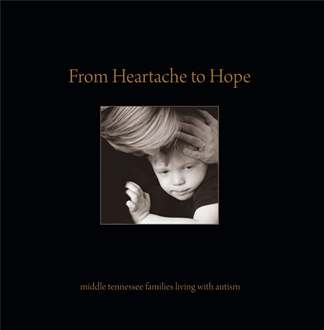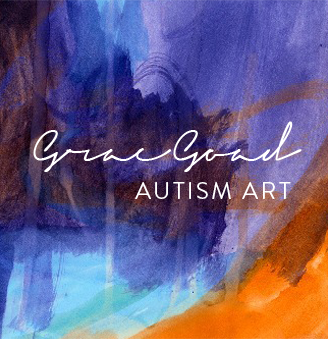Ironically, it's another sign of our digital times that I learned that Nashville proper's only remaining full-service bookstore, Davis-Kidd Booksellers, is closing–not from the print version of the Tennessean's front page but via the (social media) blog of southern author-friend Susan Gregg Gilmore.
It is digital technology that is ushering in a new age while analog gals and guys like me dig our fingernails into the pages of physical books, clutching them to our chests, moaning "No! No! No!"
Yes, it is a cyber train that we cannot stop. Yes, it is a good thing in many ways, but I have yet to order an e-book (except once by mistake,) nor do I want to consume my ink and paper and spend more time online to do so. (I'm sorry dear friends who've written e-books. Good for you. You are more progressive than me, but I don't want to lose my physical books or the bookstores that I buy them in.) A physical book engages not only the mind (which an e-book will do,) but the senses of touch through the weight of the book, it's pages, the feel of its cover; the sight of good design–type and illustration. A good book is a piece of art–literary AND visual.
Yet, another irony. I am one who, along with the masses of our culture, who pounded nails into the coffin of Davis-Kidd and the like. The very morning that I learned the sad news of this 30-year-old Nashville community icon's closing, I opened my front door to find a large box bearing $136 of books from the land of Amazon. Blush. Christmas….I could not sell my own book in the online mammoth store because our volume did not warrant it and the nonprofit for which I wrote From Heartache to Hope would have lost money….When I showed the mother-in-law the lush hardback cook book I'd purchased for her to give Husband 2.0 for Christmas, she looked inside the cover and pronouced the price at $40. No, I told her, wincing. It was $26.
Davis-Kidd, started by two social workers respectively and eponymously named, was a gathering place. It loved its local writers and we loved them. They were kind and gracious to us. If you wrote a book in Nashville, a book signing there was in order. People routinely asked me if our book was available at Davis-Kidd. With all due respect to the chains here–one of them who was generous to our book cause, the other who was not–Davis-Kidd, as Gilmore writes, treated us like family.
Our book, top left, Davis-Kidd Booksellers.
Nashville has lost a family member. Yesterday, I ventured to the mall–the bookstore's latest relocation, which some say accelerated the store's death. People were exiting, longingly browsing, their faces cramped in expressions of pain. They were mourning.
With confidence, my multi-published author friend, Candy Paull assures me: "We are creating something new, but it's sad to see the best of the old disappear […] Times of chaos and change may be perceived as overwhelming crisis, or an opportunity to reinvent yourself. The book publishing industry is now facing the same challenges as the music industry did a few years ago. Traditional publishing used to be the only game in town. Now, a new paradigm is emerging, offering opportunity in turbulent times.
"[…] The transition within the book publishing industry from physical inventory stored in a warehouse and trucked to retailers to digital files stored in cyberspace and delivered almost anywhere on earth as quickly and cheaply as e-mail is now underway and irreversible. This historic shift will radically transform worldwide book publishing, the cultures it affects and on which it depends. Meanwhile, for quite different reasons, the genteel book business is already on edge, suffering from a gambler’s unbreakable addiction to risky, seasonal best sellers, many of which don’t recoup their costs, and the simultaneous deterioration of backlist, the vital annuity on which book publishers had in better days relied for year-to-year stability through bad times and good. The crisis of confidence reflects these intersecting shocks, an overspecialized marketplace dominated by high-risk ephemera and a technological shift orders of magnitude greater than the momentous evolution from monkish scriptoria to movable type launched in Gutenberg’s German city of Mainz six centuries ago.
"The digital revolution sweeping the media world is rewriting the rules of the book industry, upending the established players which have dominated for decades. Electronic books are still in their infancy, comprising an estimated 3% to 5% of the market today. But they are fast accelerating the decline of physical books, forcing retailers, publishers, authors and agents to reinvent their business models or be painfully crippled.
"'By the end of 2012, digital books will be 20% to 25% of unit sales, and that's on the conservative side,' predicts Mike Shatzkin, chief executive of the Idea Logical Co., publishing consultants. 'Add in another 25% of units sold online, and roughly half of all unit sales will be on the Internet.'
"In the music industry, digital profits come from the device while content is essentially given away. While margins are thin on 99 cent songs, the bulk of Apple's digital music profits come from iPod sales, for instance. The opposite business model is emerging in the publishing industry. With margins being squeezed on e-reader devices, the profits from consumers switching to digital will be from selling e-books. In publishing, the device is the razor and e-books are the profitable razor blades. To remain viable, device makers will have to ally themselves with or be a part of a digital book selling operation.
"E-reader device price wars are a shot over the bow — the future of publishing has been clarified: digital books are set for explosive growth while print books are slowly headed toward extinction."
On that last point–Candy, while I think you're right, I hope for the sake of my beloved books and bookstores, maybe you're not. Goodbye Davis-Kidd. So, long. Thank you. I'm sorry.
Paull leads workshops for writer's seeking to find which route–including digital, self- and traditional publishing–is best suited for them. Her work is based on two years of extensive research on the industry's revolution. She is currently publishing e-books.





Leisa, Thanks for this. You eloquently put into words what I have been feeling. The interesting thing is–the last few times I’ve been there (usually on date night with hubs), we’ve browsed books but didn’t buy. Why? Because we knew we could “get it cheaper on Amazon.”
I am sad to see it go. I watch the “future of publishing” with cautious anticipation and a smidge of trepidation. 😉
Did something shift when Davis-Kidd sell out to still independent but larger Joseph Beth? Some think so. Paull theorizes that maybe the void that DK is leaving can be filled after the recession and that part of the key is that commitment to local, which national chains just don’t have. One successful example she sites of such is Malaprops in Asheville. I’d say Powell’s of Portland is another. I thought of them immediately when I heard DK is closing. As Paull indicates, it’s a mutual knitting of commitment. From the store to the local community and back….
I’m so sorry to hear the David-Kidd is closing, I loved shopping there on visits to Nashville. One thing about Powell’s is that it has not only a huge brick-and-mortar store, but it also has quite an extensive online presence and I’m sure that makes a difference.
Read more (15 comments as of this writing) on my Facebook page: http://www.facebook.com/#!/profile.php?id=100000466632930
Thanks for the “local” perspective, Charlotte! I never have put up my Amazon widget and wondered if there is an Indie or Powells widget to direct sales to when a reader clicks through via a book recomendation on my blog.
Thanks, Mary. Good to hear from a member of Nashville Women Who Blog. Ideally we are all writers and we “should” care about this!
I love to touch the pages and run my fingers across the words… not the same romance with a computer screen.
@Irene: EXACTLY!
the store that Karen Davis and Thelma Kidd created 30 years ago was a marvel, and I applauded them selling the venture to follow other dreams. Often when an independent business is sold, a part of its soul gets lost in transition. And, over time, I felt that D-K had lost a strong community bond (despite its commitment to local writers/book signings) devolved into more of a gift store that sold books. The move to the mall was the crusher.
Nonetheless, the closing speaks volumes about our economy in the digital age—I have very mixed feelings about it all—because the change is here—and as writers and readers we have to with it, or get left behind.
Exactly. Very well said, Nancy!
Some of my recent related Tweets: UK: Save Our Libraries day-facing massive bud. cuts, threateng 2 clse 400 librys. “Keep your hands of our hardbacks!” http://bit.ly/f5H5vH
“We still need books to make sense of Wikileaks” [wOOT!] via @SterlingBooks & :http://bit.ly/eTTXmV @Wordstrumpet @SusanGilmore